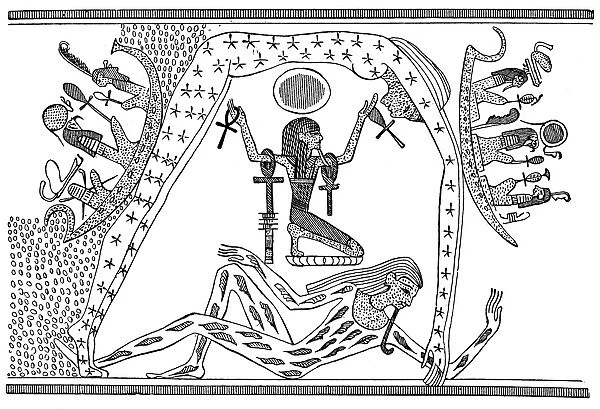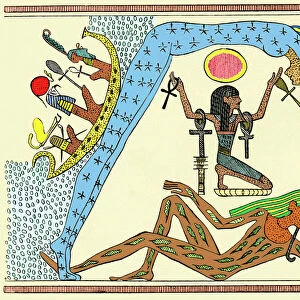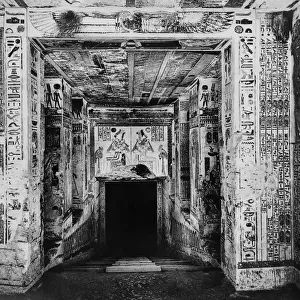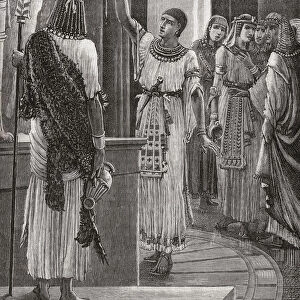Home > Africa > Egypt > Related Images
EGYPTIAN UNIVERSE. The ancient Egyptian cosmos, depicting Geb (Earth), Shu (Air)
![]()

Wall Art and Photo Gifts from Granger
EGYPTIAN UNIVERSE. The ancient Egyptian cosmos, depicting Geb (Earth), Shu (Air)
EGYPTIAN UNIVERSE.
The ancient Egyptian cosmos, depicting Geb (Earth), Shu (Air), and Nut (Heavenly Vault)
Granger holds millions of images spanning more than 25,000 years of world history, from before the Stone Age to the dawn of the Space Age
Media ID 12407206
African Egypt Element Goddess Heaven North African Personification Theory Universe World Ankh
FEATURES IN THESE COLLECTIONS
> Africa
> Egypt
> Related Images
> Granger Art on Demand
> Science
EDITORS COMMENTS
This print titled "EGYPTIAN UNIVERSE" takes us back in time to the ancient Egyptian civilization, where a rich and complex cosmology was embraced. The image beautifully depicts three significant deities personifying different elements of the universe. Geb, representing Earth, is portrayed as a powerful god lying beneath Shu, the god of Air. This depiction symbolizes the fundamental connection between land and sky in Egyptian mythology. Above them both is Nut, the goddess personifying the Heavenly Vault or celestial sphere. Her outstretched body arches over Geb and Shu, enveloping them within her protective embrace. The composition exudes an air of mysticism and wonder as it invites us to contemplate how these ancient Egyptians perceived their world. Their belief system held that each element played a crucial role in maintaining cosmic balance and harmony. As we gaze upon this artwork, we are transported to a time when gods were revered for their influence on daily life - from fertility to weather patterns - shaping every aspect of existence. It serves as a reminder of humanity's eternal fascination with understanding our place within the vastness of the universe. Granger Art on Demand has masterfully captured this profound representation from African history without commercial intent but rather with an intention to preserve cultural heritage through art appreciation.
MADE IN THE USA
Safe Shipping with 30 Day Money Back Guarantee
FREE PERSONALISATION*
We are proud to offer a range of customisation features including Personalised Captions, Color Filters and Picture Zoom Tools
SECURE PAYMENTS
We happily accept a wide range of payment options so you can pay for the things you need in the way that is most convenient for you
* Options may vary by product and licensing agreement. Zoomed Pictures can be adjusted in the Cart.





